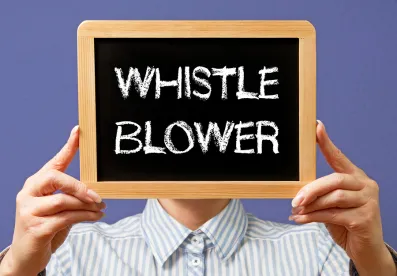On February 28, 2020, the U.S. District Court for the Southern District of New York dismissed a former chief marketing officer’s claim of whistleblower retaliation under the Dodd Frank Act. Cellucci v. O’Leary No. 19-cv-02752 (S.D.N.Y. 2020).
Background
Plaintiff is one of several former chief executives of a closely-held infrastructure technology company who were terminated. Plaintiff alleges that on March 7, 2019, he filed a complaint with the Securities Exchange Commission (SEC) concerning the conduct of the company’s chief executive officer, who is also its president and majority shareholder. Plaintiff’s allegations did not include details regarding what conduct he complained about to the SEC, how any securities laws were violated or that he notified anyone at the company about his allegations. Plaintiff was terminated approximately one week after making the complaint to the SEC.
Ruling
The company moved to dismiss, arguing that Plaintiff failed to state the requisite elements of a retaliation claim: 1) that he engaged in protected activity; 2) that he suffered an adverse employment action; and 3) that the adverse action was causally connected to the protected activity. The court granted the company’s motion to dismiss, finding that the plaintiff failed to allege the first and third elements of a retaliation claim.
The court noted that to have engaged in protected activity, a plaintiff must have had an objectively reasonably belief that the defendant’s conduct violated one of the six enumerated provisions of law under 18 U.S.C. § 1514A(a)(1). Not all conduct falls within the scope of Dodd-Frank’s whistleblower protection, and Plaintiff did not identify a specific provision or section of applicable law that may have been violated. Nor did Plaintiff’s allegations mention the contents of his complaint to the SEC. Finally, the court held that Plaintiff was not entitled to an inference that his SEC complaint included every allegedly improper action mentioned in his suit against the defendant, because he did not assert he had personal knowledge of any of those actions. Thus, Plaintiff did not identify how he had engaged in activity protected under Dodd-Frank.
The court also held that Plaintiff had not pled any facts suggesting a causal connection between his termination and his complaint to the SEC. Plaintiff did not allege that he communicated his concerns to anyone at the company, and it was undisputed that the SEC is obligated to maintain the confidentiality of all whistleblower reports. Thus, Plaintiff did not plausibly plead facts sufficient to show how the company could have learned about his confidential SEC complaint and fired him because of it.
Implications
This decision is a helpful one for employers because it reaffirms that plaintiffs asserting Dodd-Frank whistleblower claims must plead factual allegations – and cannot rely upon inferences and speculative assertions – to satisfy their burden.





 />i
/>i

